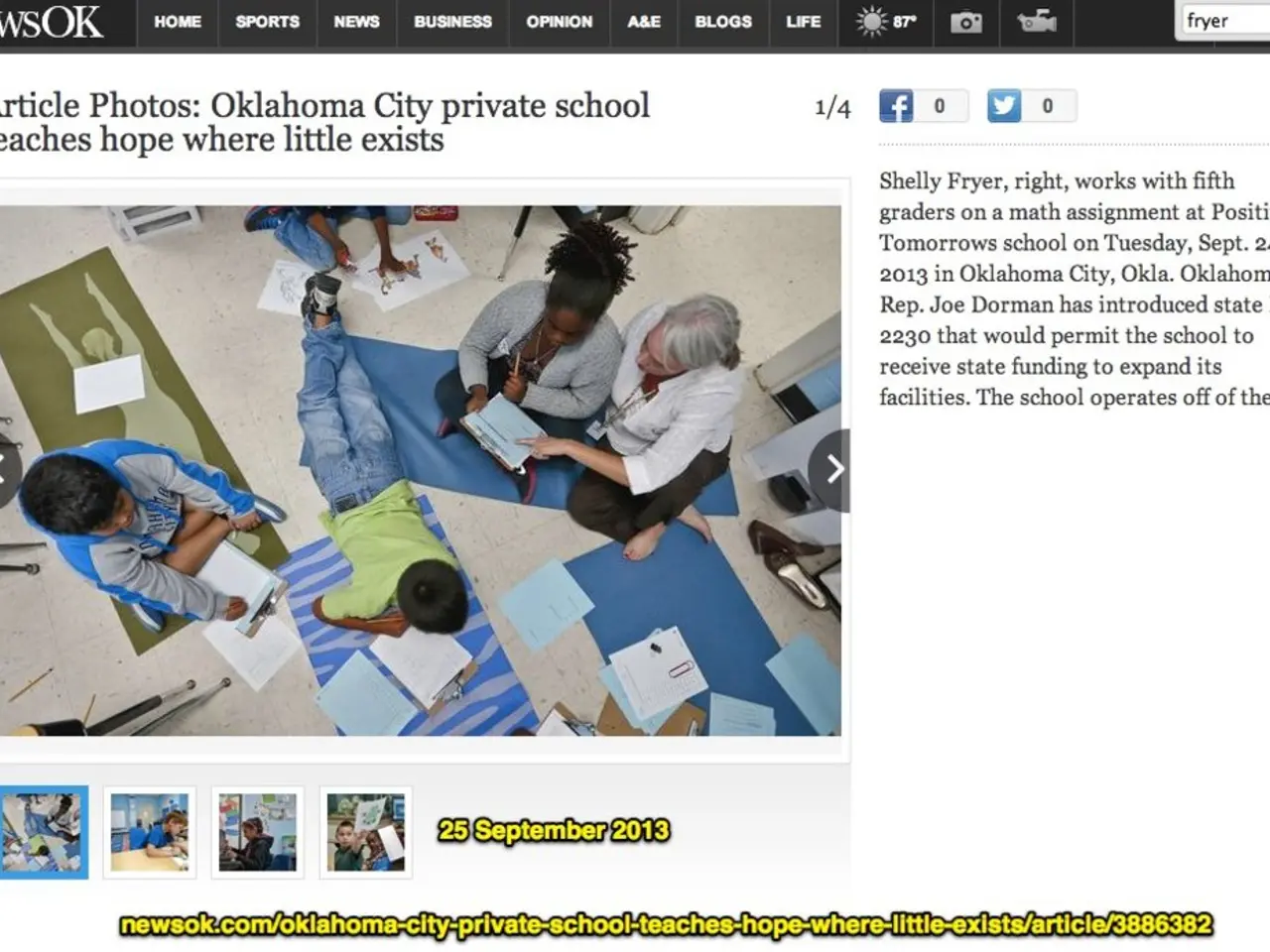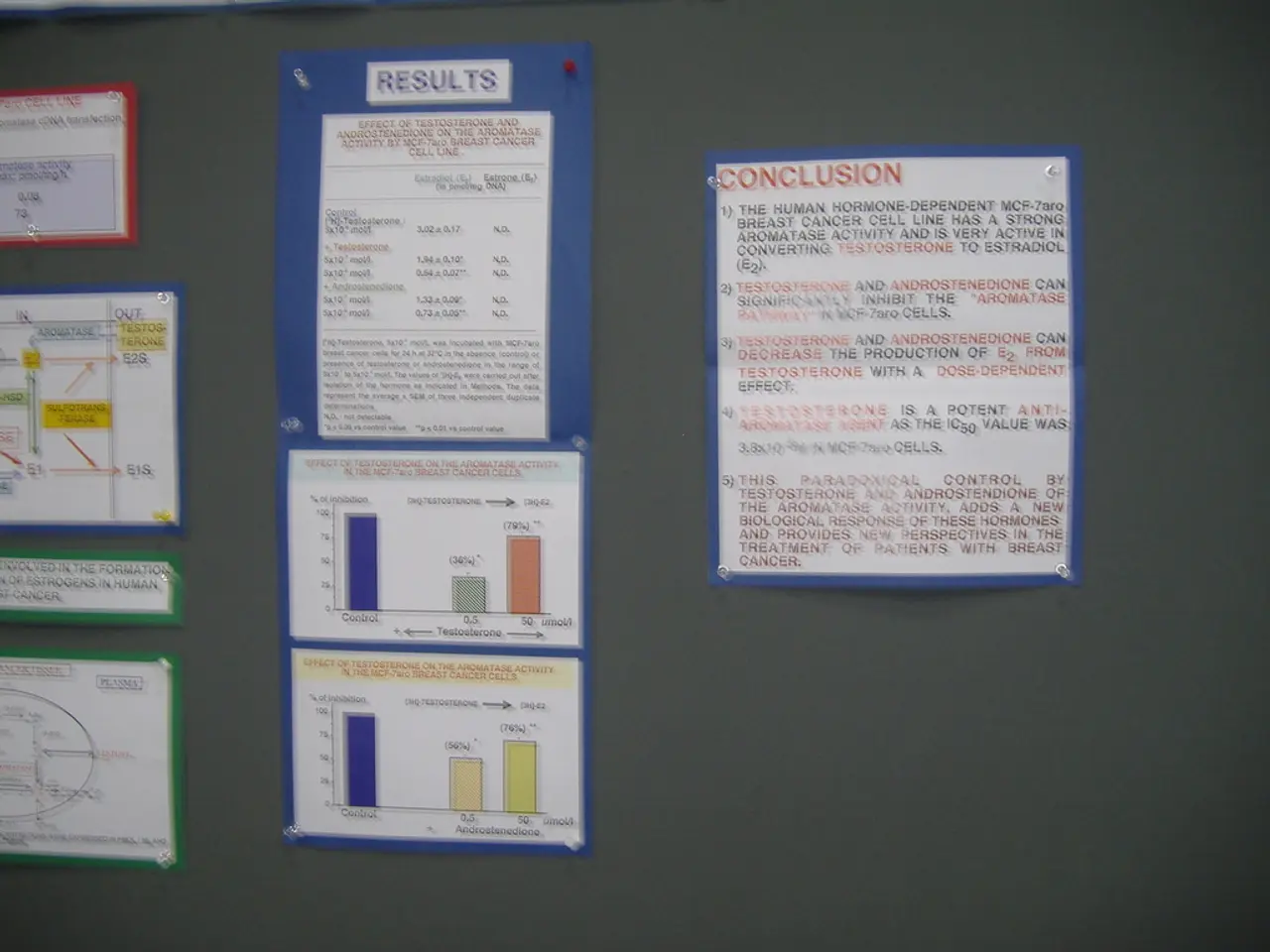Tech Companies' Profits at Stake while School Districts Sue over Youth Mental Health Issues
A significant legal battle is unfolding in the United States as dozens of school districts have filed lawsuits against major tech companies, including Meta, Google (YouTube), ByteDance (TikTok), Snap Inc., and others. These lawsuits, which involve hundreds of school districts across the nation, aim to address the cost of the youth mental health crisis, both financially and emotionally.
As of late July 2025, over 1,400 lawsuits, including those by school districts, individuals, and municipalities, have been consolidated into a federal multidistrict litigation (MDL No. 3047) to coordinate pretrial proceedings and increase efficiency in addressing these claims.
The lawsuits argue that these tech companies knowingly designed their platforms to exploit children’s brain development, akin to nicotine addiction, driving excessive use that has led to increased anxiety, depression, and other mental health challenges among students. Schools claim they face overwhelming mental health service demands and financial burdens caused by these platforms, seeking to shift accountability and costs onto the companies responsible.
In early 2025, federal judges have allowed key claims—such as negligence and wrongful death related to youth mental health harms—to proceed, rejecting dismissal attempts from the defendants. This is considered a major win for plaintiffs that strengthens their case going forward.
The first bellwether trial, a test case to guide the broader litigation, is scheduled for November 25, 2025. Additional bellwether trials are being planned, which will play a pivotal role in determining liability, damages, and could potentially trigger settlement discussions.
Examples of school districts involved include Harford County Public Schools (Maryland) and Corpus Christi Independent School District (Texas), among others, demonstrating widespread district-level involvement. The legal wave began in 2023 with Seattle Public Schools filing the first major case, and more than 500 districts have since joined similar suits, including Houston ISD, the largest district in Texas.
The mental health of teenagers has been in decline for the past decade, with schools often being the first line of defense. State-level policy changes are limiting phone use during school hours and exploring stronger digital protections for youth.
Internal documents made public in state-level lawsuits show that Meta knew Instagram was contributing to negative mental health outcomes in teens but continued to prioritize features that maximized engagement. Social media is taking a heavy toll on students' emotions and behavior, forcing schools to manage a full-blown mental health crisis.
Conflicts that start online, such as bullying, image sharing, or AI-enhanced harassment, are increasingly playing out at school. Teachers and staff are left to break up fights, mediate drama, and support students showing signs of emotional dysregulation due to algorithm-driven scrolling.
Some districts now require students to lock phones in magnetic pouches at the start of the day. The lawsuits allege that these tech companies deliberately designed their products to be addictive and psychologically harmful. Legal action against tech giants is following a similar path as previous cases, such as the opioid crisis and PFAS contamination, focusing on corporate accountability for system-wide harm.
New legislation is being introduced in New York and California to address youth mental health issues related to technology. Attorneys argue that without legal pressure, tech companies have little incentive to slow down their growth or redesign systems that cause psychological harm, especially when vulnerable populations like children are involved.
The lawsuits are not about banning technology but about acknowledging the impact of tech companies' tools on young people's thoughts, feelings, and connections, and the consequences that arise. They seek financial damages and structural changes, including more transparency, safer platform design, and funding for support services. Administrators are trying to adapt by expanding mental health staffing, offering digital literacy programs, and confiscating phones during the school day.
According to the U.S. Surgeon General, nearly half of adolescents say social media makes them feel worse about their body image. A 2025 Pew Research Center study found that 46% of teen girls report feeling sad or depressed because of social platforms, and almost 70% of teens believe social media negatively impacts their peers' mental health.
The lawsuits argue that tech companies have created tools that shape young people's behavior, without the input of schools or other institutions. As this legal battle unfolds, it remains to be seen how the tech industry will respond and whether changes will be made to protect the mental health of young users.
- The school districts, who are among the plaintiffs in the federal multidistrict litigation, are seeking a shift in accountability and costs from tech companies onto those responsible for the mental health crisis, forcing an examination of the role of tech industries in education-and-self-development and mental-health.
- Amidst the ongoing legal battle, policymakers are considering state-level policy changes that address the impact of technology on health-and-wellness, particularly focusing on mental health, and exploring stronger digital protections for youth to mitigate the negative effects on their thoughts, feelings, and connections.




